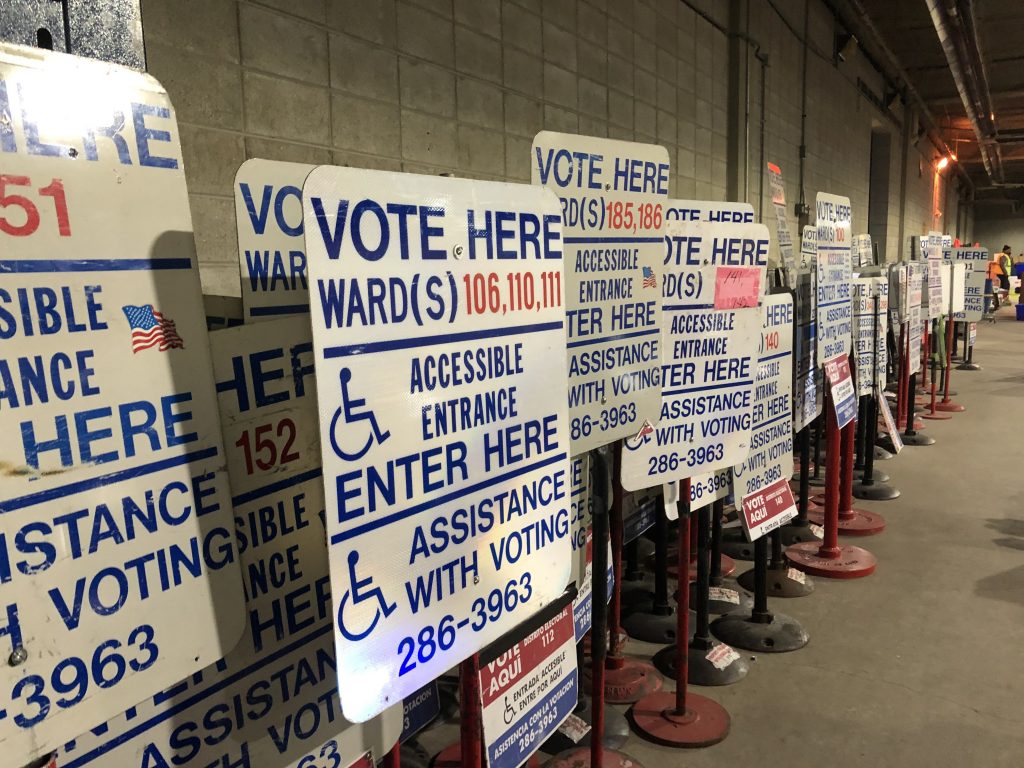Final Five Bill Changes Congressional Elections in Wisconsin
Bipartisan proposal pushes less partisan, ranked-choice elections.
As a gridlocked Congress lurched toward a last-minute showdown that avoided a government shutdown, five Wisconsin legislators – three Republicans and two Democrats – are again asking their peers to join them in finding a new way to elect the state’s two U.S. senators and eight House members.
The five – Republican Reps. Tony Kurtz and Ron Tusler and Democratic Rep, Daniel Riemer and Republican Sen. Jesse James and Democratic Sen. Jeff Smith – said it’s time Wisconsin adopted the Final Five system of electing members of Congress.
States control how their Washington, D.C., lawmakers are elected – and the current system doesn’t work, the five said.
Asking for cosponsors of a bill that got 22 supporters last session, but never got beyond a public hearing, the five legislators said the changes Final Five Voting would bring include:
“Addressing root cause, systemic issues in our electoral system through a free-market politics approach; giving [Washington] legislators the freedom and incentive to solve problems; mitigating against divisive primaries, allowing for more choice and more voice in the general election [and] ensuring winners have majority support.”
“Washington is broken, and we have to do more to try to get Washington to be fixed. And I think this is one opportunity that we can do that,” Tusler, an attorney and member of the Assembly Committee on Campaigns and Elections, said in a Wisconsin Public Radio (WPR) interview.
“It will not solve all problems in D.C. Nothing will,” Tusler added. “But this is something that would be a step in the right direction.”
“It’s proven to be a motivator for the elected officials to be more open, to be listening to each other and to their voters and not be so partisan and extreme,” Assistant Senate Democratic Leader Jeff Smith told WPR.
Alaska and Maine use Final Five Voting to elect federal and state legislators. Other states and cities use different forms of ranked choice voting for some elections. The five Wisconsin legislators are proposing Final Five Voting for only U.S. senators and House members.
One drawback of the plan is its complexity:
It would create nonpartisan primaries for the U.S. Senate and House races with the names of all major and minor-party candidates and independents on the ballot. But only the five who get the most votes would advance to the general election.
In the general election, voters could rank their preferences – their first, second, third, fourth and fifth choices – or they can vote for just one candidate and not rank next choices. They could also cast a ballot for a write-in candidate.
If no candidate gets a majority of votes for that office, there is an “instant runoff” that tabulates voters’ rankings of other candidates.
According to the Legislative Council, an “instant runoff” works this way: The name of the candidate receiving the least number of first-choice preferences is dropped, and the second-choice preferences of the voters who preferred that candidate, if any, are then added to the first-choice preferences for the other candidates.
The runoffs continue, eliminating fourth-ranked and third-ranked candidates, until one candidate gets 50% of the combined first-choice and reallocated preferences.
The group Democracy Found, formed in Wisconsin by retired business executive Katherine Gehl, has been promoting Final Five Voting for years. Dozens of Wisconsin business, political and civic leaders support Democracy Found, including UW System President Jay Rothman and former Republican Congressman Reid Ribble.
“Our political problems aren’t attributable to a single cause, but rather to a failure of the nature of political competition,” Gehl says. “This is a systems problem requiring systems change.”
Gehl co-wrote a book, The Politics Industry, arguing for Final Five Voting.
The book’s forward was written by Republican U.S. Rep. Mike Gallagher, of Wisconsin, and Democratic U.S. Rep. Chrissy Houlahan, of Pennsylvania.
In that forward, Gallagher and Houlahan wrote of their frustrations – frustrations surely renewed by last week’s Congressional gridlock:
“Why are we more often opponents than colleagues? Why are we collectively allergic to the compromise and teamwork required to do what Americans want and expect of their Congress? Why can’t we get big things done for the American people?
“Because the system is built to tear us apart. In American politics, winning isn’t winning unless the other side is losing, and losing badly. This shouldn’t be. And it doesn’t have to be.”
Other legislators have until Wednesday to join James, Tusler, Kurtz, Smith and Riemer as Final Five Voting cosponsors.
Steven Walters started covering the Capitol in 1988. Contact him at stevenscotwalters@gmail.com
If you think stories like this are important, become a member of Urban Milwaukee and help support real, independent journalism. Plus you get some cool added benefits.
The State of Politics
-
A Wisconsin Political Trivia Quiz
 Dec 15th, 2025 by Steven Walters
Dec 15th, 2025 by Steven Walters
-
The Fight Over Wisconsin’s House Districts
 Dec 8th, 2025 by Steven Walters
Dec 8th, 2025 by Steven Walters
-
The Battle Over On-Line Betting
 Nov 24th, 2025 by Steven Walters
Nov 24th, 2025 by Steven Walters























https://democracyfound.org/advisory-council-supporters Take a look at who is behind this. Rich people and right-wing politicians. What do they know that we do not?
I think that most people vote for the name they recognize particularly in US House elections.
Or the person that had the most ads. Not the person who has views they support.
I am not really criticizing voters here. When I was working and had other time-consuming commitments, I am ashamed to admit the is how I picked a person to vote for – to my shame. Once I realized I really voted for someone who did not believe in the type of government I do, I began to leave vote opportunities blank if I could not identify the policies of the person I wanted to vote for.
It bothered me a great deal to leave an opportunity blank, but better that I do so than inadvertently vote for someone with whom I did not agree.
In retirement I have the time to research candidates. Admittedly it is much easier now that the former Republican party has begun espousing fascist policies. I simply vote against any Repub incumbent who has been stupid.
RCV/IRV >>>> FPTP
This is definitely a good move.